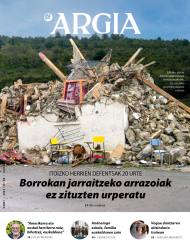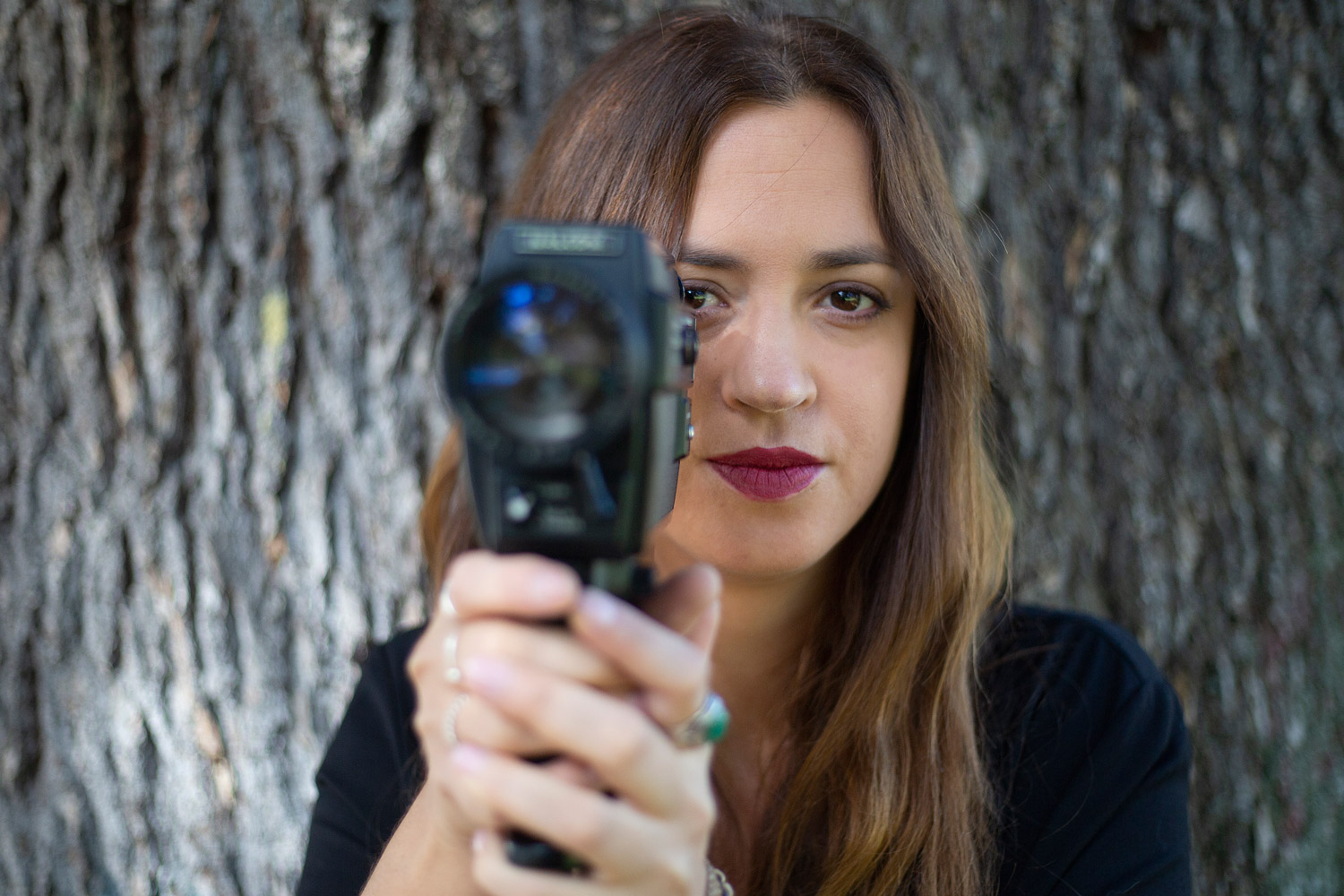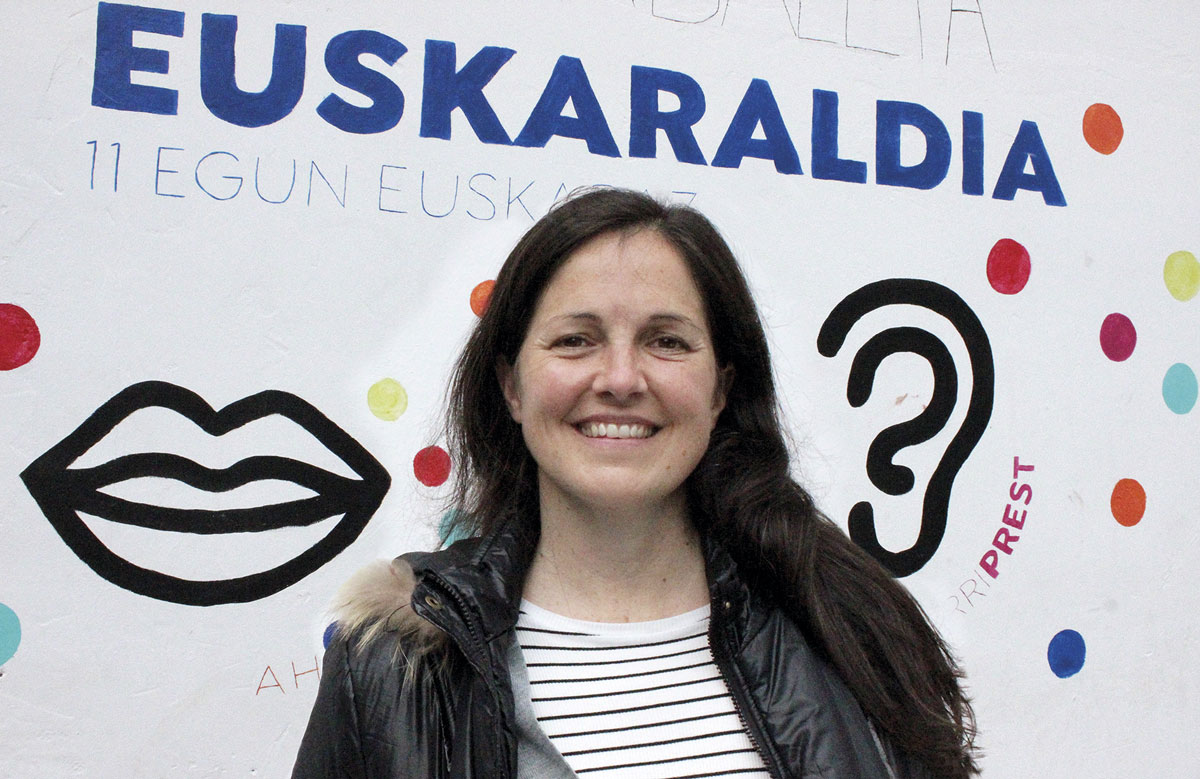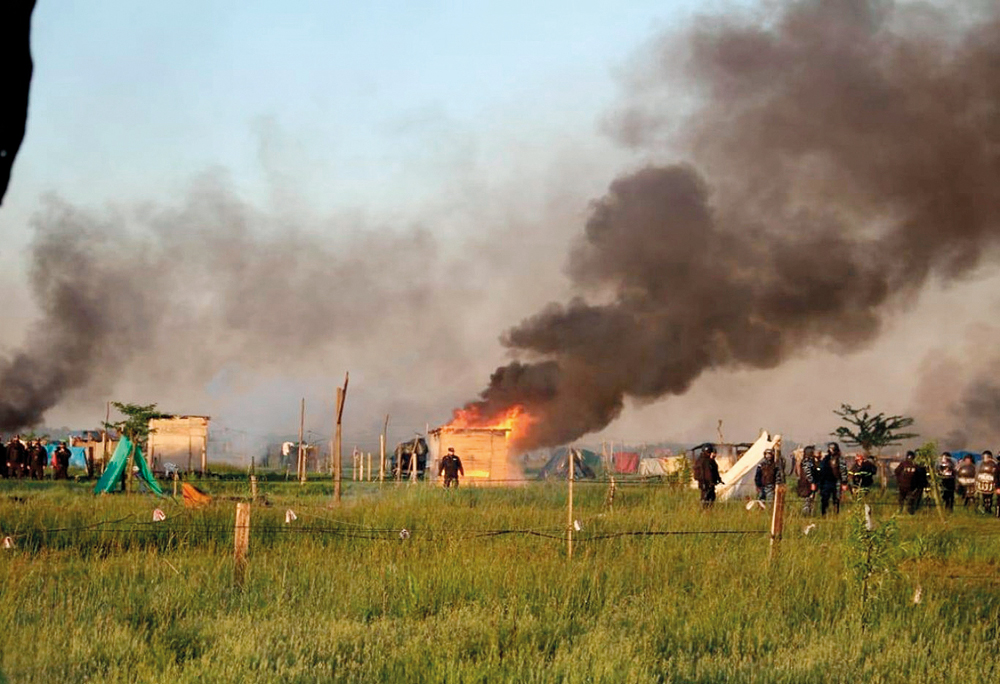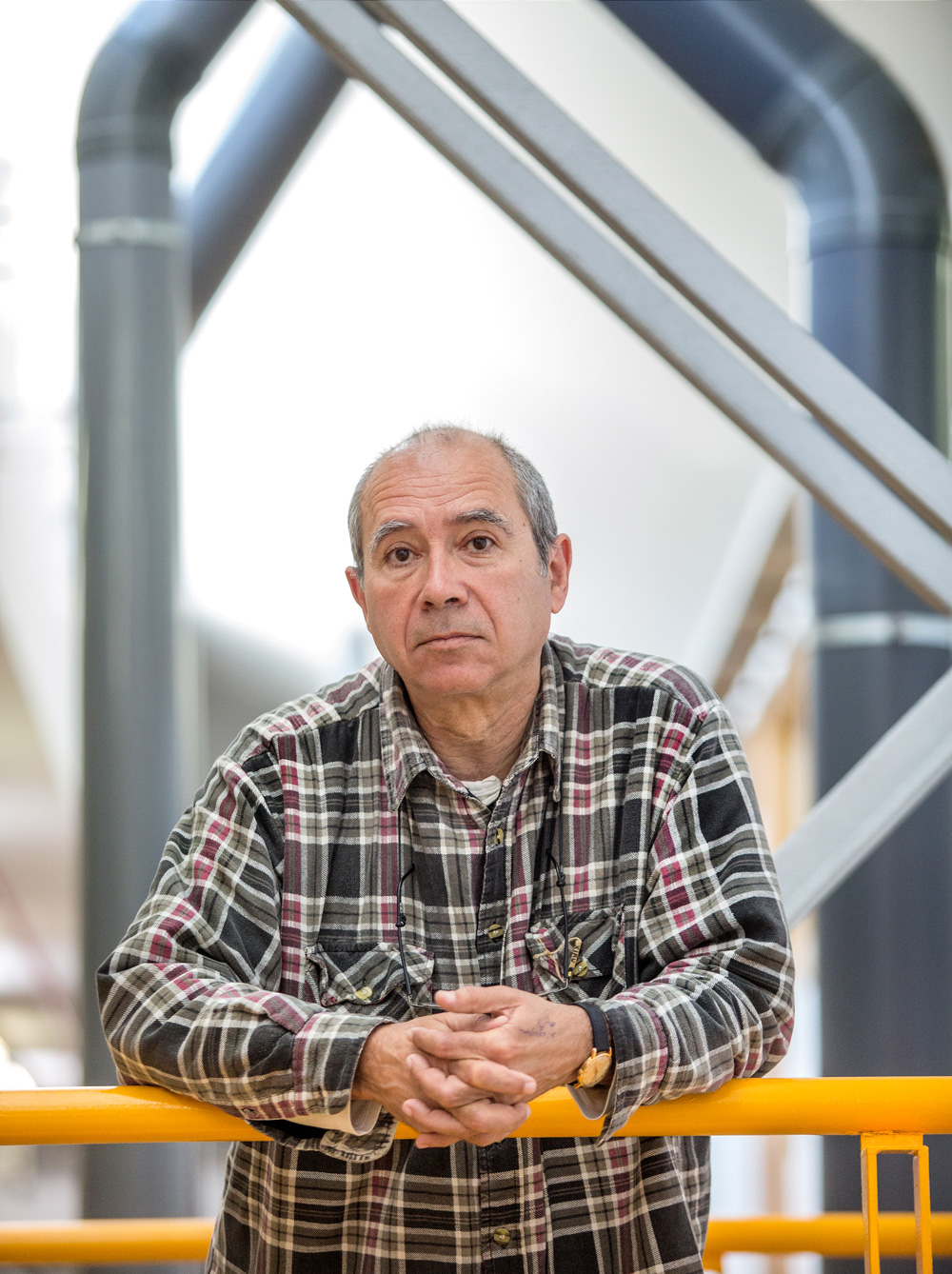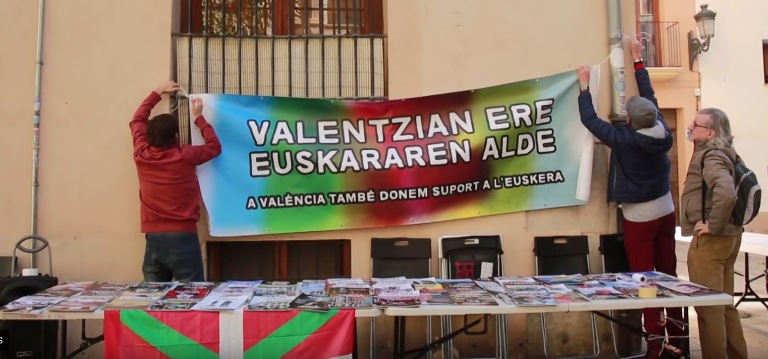"I am American and Basque, but I am Basque at heart"
- The Udatian has left. In peace. This is how he likes Steve Mendibe Aroztegi, a town that lives in Euskera, without the strange Castilian that summers bring. Born in California, lives in Boise, it's as Basque as the American. It has two nationalities, two censuses -- one heart.

Steve Mendibe Aroztegi. Marysville, California, 1958
American Basque, as you say. In the early 20th century, his ancestors travelled to the west of the United States and is heir to them. He first came to Euskal Herria in 1977, to Oñati, to learn Euskera, and since then he is here on a journey. He was a professor, but he was also a lawyer. Just in summer he moved to Ea and left his legal job for long stays. In 1990 he was appointed president of NABO, an entity that groups Basque clubs EEUU.Basque is there, Euskaldun here: he learned Basque to be Basque.
[We have been quoted on Ea Street with Steve Mendibe, but he has taken us directly and taken us home. What he wants to show is a framed document. It dates back to 1915, a document authorizing Steve Mendiver's father to travel to the United States. And it starts counting.]
This document authorized our mother's father, Candido Aroztegi Iturbe, to travel to Winnemucca (Nevada), pastor, to work there with his older brother, Esteban. Kandido was in 1915, at the age of fifteen, and forever! He never came back and saw his parents, Francisco and Feliziana. Half bad, I had brothers! They were three brothers in the United States. Peter, Esteban and Candido. Peter was the first to attend. He went to a ranch, to California, pastor. Then, secondly, Esteban. Third, our mother's father, Candido. But Candido was there, Peter was killed. In February 1910, when he was traveling from one ranch to another in McDermit, Nevada, with two horses and one dog, he was captured by a snowstorm on the mountain. A horse was able to go to the ranch, the dog too; Peter did not: there he died frozen at the age of nineteen.
[That said, it shows us the old picture of the family.]
Joaquín, who was the barber of Ea, Julio, who went to Cuba, Antonio, Esteban, Bizenta…
The only woman, your Byzantine aunt. Did you also go to the United States?
Yes. From Ea to Bilbao, he worked in the house of some wealthy in a year. He then went to California, where he married an Ajangiz. When she became pregnant, the man abandoned her aunt in Bizenta. Since then, her son had to grow up alone in Sacramento. He had a little inn around a capitol. He fed, all right, and he gained fame. They say that before anyone had electricity at home! The accommodation had no name because it was a small thing: it would have had a couple of rooms for the most known. I remember my aunt saying, among other things, that Elizaga was going. To sleep I didn't catch many people, but to eat up to twenty people! On the table, he offered them a tragic whisky. She said it herself.
The migration history of her house began in 1915.
From the mother, yes. From my father, it's another, but I don't know the years or the time. On the part of his father we are part of the writer Karmelo Landa Mendibe of Ea, small cousins. Our father was Prudencio Mendibe Ibarluzea and my mother María Luisa Aroztegi Muller! My mother's mother was German, but the Chipirones in her ink were made by our mother! For that, you have to be Basque! I therefore say that I am half a Basque, but my appearance is totally Basque. And there I live, in South Village of Idaho.
"If I had an airplane from Oñati to Boise, I would have taken it back! Nineteen years I, and I did not know Basque or Spanish"
Almost the only ikurrina in Ea is from your home.
Batzoki has it too! When I come in summer I hang it. Withdraw upon arrival. And if I don't wear the ikurrina, I get angry at the people! You're used to that: when I'm here I have to put the ikurrina. I've been coming to Ea for 23 years, I bought the house the year the Twin Towers were thrown, and I come, I put the ikurrina and people know I'm here. This year I came and forgot to hang the ikurrina. Days later people see me in the street: “What about ikurrina? You haven't put it!" That's what Ea and Ibarrangelu know, that I'm here.
.jpg)
He has been selling Euskal Herria for twenty years…
No, more! For the first time I came in 1977, but not to Eara, but to Oñati. In Boise, there was Pat Bieter, the father of the current mayor, very fond of the Basques, and he organized an Basque course in Oñati, through the State University of Idaho, and so I went to Euskal Herria for the first time. He was nineteen years old. We came from Basques from America, we didn't know Euskera, but we wanted to learn.
Did I know the Basque by then?
Yes. I'm not from Boise (Idaho). I was born in California, in Marysville, next to Sacramento. My father and father, I talk about the mother, they did it in Basque. I didn't listen to them then, I didn't listen to them. My mother was from Bolibar, but she also lived there, in Elko, Nevada. And when he died, my family went to Elko, and I heard only in Basque! Three years after I went to Elko, my father died and the Basque was over in my surroundings, because our mother did not know: I mean, my mother was German, Muller. And so it came into my head that I had to study in Basque. And when I learned that Pat Bieter organized that course in Oñati, I came. It was hard!
Hard?
Yes. If I had an airplane from Oñati to Boise, I would have taken it back. Nineteen years I did not know Basque or Spanish. I still don't know how to speak Spanish. One way or another, but nothing else. In Basque, increasingly and better: last year I was in the Barnetegi of Amorebieta in the summer, and I got almost the title B2! But it's a hard to write exercise, which is spelling! I am almost before the unified Basque!
He got into his head that I had to study in
Basque… Yes, and I don’t know why, but that’s what I decided. My brother, for example, is very Basque, but “local Basque”, from there: Nevada, Idaho, California… She knows a lot about the history and life of her pastors. I know less about that, but I've learned Basque, and I want to learn more and more. I read every day in Basque.
And after that Oñati course?
For example, the sanfermines in Pamplona! There he was in 1978, when they killed Germán [Rodríguez]. Cars on fire and I: “Good holidays!” I still didn't know Germán was killed. In 1985, when I signed up, I came on vacation here and I was in Markina, in a hamlet. At two in the morning the civil guards came and put me against the wall. One of the civil guards spoke of perfect English, especially came to question me! Four, six hours remained the civil guards in the house. It was the time of the Hotel Monbar attack [25 September 1985, in which the GAL killed four Basque refugees], in which the civilian guards carried out various explorations.
"At two in the morning the civil guards came and put me against the wall. One of the civil guards spoke of perfect English, especially came to question me! Four, six hours there were civil guards in the house"
Was one of the civil guards especially to question you?
Yes, it was. When I was a Shoshon prosecutor, I would have liked to call that civil guard in front of me. [Idaho] I would have liked the police to do what it did to me! I have recorded in my memory the image of that civil guard, his perfect English, clean and without accents. I went back to the United States and, angry, denounced the situation in Idaho Statesmen.
Were you also a lawyer in Idaho?
Yes. I first studied teaching and then studied law. I have served as a professor and, at some time, as a state attorney in [Idaho]; then I was a district attorney and then a prosecutor… For example, when I was a Shoshon (Idaho) prosecutor, my Basque secretary, Sandy Berriotxoa. His father was from Elorrio, the lineage of the saint. But I didn't like that fiscal job, and I came here.
.jpg)
To Basque Country?
Yes, teach English at ikastola Lauro de Loiu. A year….And it has happened to me that my former students are there or here, Ean, or Lekeitio, on the street. Sure, these are people 50 years old, but they still know me, and they tell me they have a good memory of me… I did the ikastola year and went back to Boise. [Idaho] For eight years, I was a state attorney, but I realized I was short of time! Time, why? To come to Basque Country! And I went back to school so I could come here on vacation. Since 1994, I've been here every year, every summer. If I retire, here I go every summer month. Before, for example, when I worked as a lawyer, I couldn't stay for more than a month here.
In 1990 I was president of NABO, an organization that groups Basque clubs in the
United States… Yes, in 1992 I stopped being president of American clubs. I was 31 when I named him head, young man! I spent three years in office. Some Navarros, others Bajeneses, Biscayan… there was always something, but now we all get along. Furthermore, there too the Basques have confused each other, especially in Elko, where more Basques have been mixed up. Before the constitution of NABO, the great Basque festival was held in Elko. There came the Basques of San Francisco, accompanied by their own chalk. You know, fucking. And from Idaho, the dance group Oinkari. In Elko we began to meet each other in Basques.
Do they keep the Basque?
Yes! We are Basques and we are proud. But there are incidents, not like before: language has been lost. And here too! When I come here, I always do it in Basque, with anyone. Those here, you who know Basque, don't speak. I have still read the interview of Helena [Barrenetxea] in ARGIA [no. 2837], saying that in Durango they do not speak Basque. How is that possible? I turn the other way around: when I come here, I do it in Basque, with anyone. There [USA] many do not know Basque, they are not Basque.
Basque?
Yes. For me it is Euskaldun who knows Euskera, who speaks Basque. My brother does not know Basque: he is not Basque, he is Basque. I'm going to have a strong debate with some people, but I'm sorry: that's why I learned in Basque to be Basque. I also thought about taking the title C1, but I'm too old to start doing those tests. Now I have enough to go to the Boise museum.
To the Boise museum?
Yes, to the Basque classes that organize the Basque museum there. I don't want to learn online by computer. I don't like the screen. At the top of the Boise Museum, at the top, we are eight students, most of them non-Basque, but they know a lot about Euskera. I have said that they are not Basque, but they are not Basque, but the Basques are! I say, I see it like this. But I, too, what am I, in your opinion? American? Basque? Basque? I have documents here and there: I am American and Basque, but I am Basque in my heart. Everyone decides that…
You were here in 1977, here we have you every year since 1994… What do you say about Euskal Herria?
When I came for the first time I was nineteen years old, I studied Euskera and went to juerga: the festival of the goose in Lekeitio, the festivities of San Sebastian, the carnivals of each other… Everything was strange to me! It seemed as strange to me as our father Candido became Nevada. But now no, now this is my people [Ea], my people are Basque Country. I am registered in Ea and in Boise, I have both nationalities, and this year, as I was here, I also voted for the first time, because so far no election has happened to me [in Spain] at the time when I was here. The other shot me this year as I voted. Months have passed and they have not yet elected the president!
"When I was a state attorney in Idaho, the militia had so many people. I also received threats and went to the mountain, picked up the gun and made shooting practices. And if someone had gotten me home, I would have shot him."
You are therefore also aware of this.
I also studied International Politics. And beware of the Spanish right: with PP and Vox. The right is being strengthened throughout Europe. And in America, watch out. When I was a state attorney in Idaho, the militia had so many people. I also received threats and went to the mountain, picked up the gun and made shooting practices. And if someone had gotten me home, I would have shot him. My mother, who died two years ago, lived in Gooding, Idaho. He would take the car and come to Boise with a small gun under the driver's seat. At 85!
United States Arms Culture… Do the United States govern the world?
No. That is not true. The world is not governed by EE.UU, money rules. There are Arabia, China… I would say that a hundred people rule the world, they are very rich and not all of them are from America. And I'm certainly not one of them. Ha, ha… It is possible that EE.UU, in the years after World War II, will be the world leader, but not today. And yet, everywhere, dogs without rest, in the United States and in Euskal Herria: you'll see more than one world everywhere.
Go back to Boise… until next year, right?
Yes! This is my house, I'm happy here, with my cousins, with the friends of Markina and Oñati, and with the people of Ea. Satisfied. I'm happy, but I'm also happy with Boise, because you know it can come to me whenever I want, because I have a house in Ea. Before, when I didn't have a house, I was very sad, I didn't know when I would come back. Now no, now I have my land here, I'm from Boise, but also from here.
* * * * * * *
The Old Generation
“In Boise, for some the key is dance; for others, singing, or choir; for others, knowing how to play mus or play ball. For me, speaking in Basque. Now there are not many Basques of my age in Boise. Unfortunately. Most are Euskaldunberris. The old Euskaldunes, those who have gone there, are dying, are becoming less and less: it is the last generation.”
Basques in the USA
“They will always be Basque in the United States. But nobody knows what they'll be like. From there, from here: How long will they be Basque here? Here are a lot of people from outside and the first language they learn is Spanish. Many do not learn Basque. And the locals don't talk. That said, right? ‘A language is not lost because whoever does not know does not learn, but because who knows does not speak’.
Digital
“The real path to know us is the face-to-face, the direct contact that you and I are making right now. We are human! Digital, virtual relationships -- it's a lie. I'm in it, but I'm older. Maybe the next step is that, digital. And what will be Basque on the Internet and in the age of artificial intelligence? What will be Basque or Chinese or European? Nobody knows. But that will not touch me.”
AZKEN HITZA Photograph
of 1949 “The
photograph was made in 1949 in Sacramento, California. There are all the brothers: Esteban, Antonio, Alejandro, Julio, Joaquín and our father Cándido. The photo is made at Aunt Vicente's house, but the aunt is missing! This year I was photographed by the cousin of the Aldeko farmhouse: His name is José Luis Bilbao Iturbe and is 89 years old.”
.jpg)
Euskal jatorriko 37 gazte estatubatuar Euskal Herria ezagutzen eta euskara ikasten aritu dira uda hastapenean.
San Frantziskoko Euskal Etxeak 40 urte bete ditu asteburu huntan.
I have received an email from Brazil. These are words of beasaindarra Estebe Ormazabal Insausti, a subscriber of ARGIA. It's not the first person living abroad that we've brought to this corner. Little by little we are collecting the opinions, reflections, criticism and praise of... [+]
San Vicente barrutia (Argentina), 1934ko maiatzaren 18a. Mathilde Díaz Vélez lurjabeak Buenos Airesetik 40 kilometro ingurura zeuden bere lursailetan Guernica izeneko herria fundatzeko eskaera helarazi zion Buenos Aires probintziako Obra Publikoetako ministroari,... [+]









